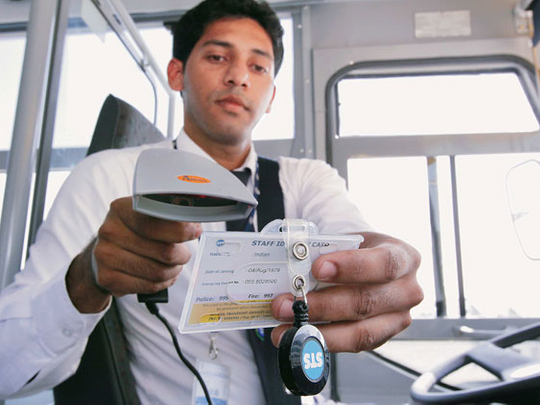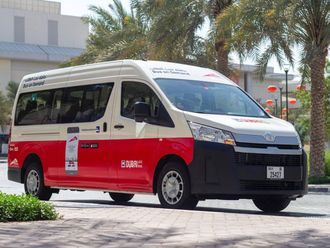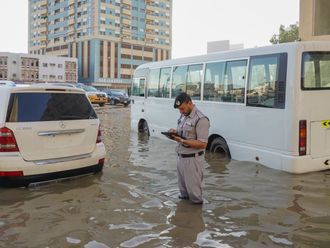
Dubai: Schools transport providers in Dubai have been advised to upgrade their units with GPS, surveillance cameras and electronic bus attendance, though they are not yet mandatory, Gulf News has learnt.
The upgrades, though not officially enforced by Roads and Transport Authority (RTA), are being recommended as important safety measures.
“We have suggested the implementation of technological upgrades to improve the safety of school children but it is still not mandatory. The upgrades incur additional costs on the providers and schools and not everybody can afford it. It might even reflect on what parents pay as fees and this is the reason we are not enforcing it. However, technologies like GPS and RFID are important to ensure safety,” said Mohammad Masood Al Janahi, Business Development Manager at RTA’s Public Transport Agency.
Earlier this year, Emirates Transport, operator of all public school buses in the UAE announced installation of similar upgrades to all its buses from this academic year, while authorities in Abu Dhabi have made certain upgrades like GPS and surveillance cameras mandatory on all school buses operating in the emirate.
Interestingly, either by popular demand or looking at the sheer usefulness of the technologies, many schools and private school transport operators have volunteered to install electronic attendance and SMS alerts as well as GPS and Surveillance cameras.
School Transport Services (STS), one of the first specialised private school transport operators in the UAE, has gone a step further by fitting out all their 1,600 buses with the safety gear.
“We started in 2008. Since then as we grew every year we add new safety features to our buses. We have electronic attendance system on all buses and send SMS alerts to parents when a child boards or alights the bus. We also have equipped all our 1,600 buses with GPS and surveillance systems, which is monitored through out from our control room,” said (Ret) Colonel Augustine, Managing Director of STS.
Augustine said that they have gone a long way in ensuring safety of the buses, while also helping in smooth operations of the entire fleet.
“These technologies have been of great help and are important in ensuring the children reach schools or home safely. Every year we to try improve on what we have and this year we have added a new feature on our buses which is called ‘Sleeping Child Button’. This system requires the bus driver to check all the seats of the bus at the end of the trip to ensure no child is left sleeping in the bus and then press the button that has been installed at the rear end of the bus. If the bus is switched off without pressing the button, the system sends out an alarm in the bus to remind the driver while it also alerts the control room,” added Col Augusine.
Who will foot the bill?
However, the upgrades come at a cost and may even lead to the hike in bus fees.
Fitting out a school bus with ID readers and installing the back-end system is the easy part, said a Dubai-based school bus operator.
“The tricky part is: who will pay for it?” said Kamran Ahmad, General Manager of Fancy Bus, which operates about 150 school buses. He said the cost of running a real-time attendance system is at least Dh30 per child per month.
“Installing the system is relatively easy. But data transmission costs money, and that’s just the running cost. That does not include the cost of one-time hardware acquisition and system maintenance.”
He said they have installed an RFID bus attendance system for two schools since last year.
“The benefit is immediate. As a parent, you will come to know if your child boarded the bus is was dropped near your home. As a bus operator, we know why and when a child boarded the bus.”
But besides the hardware and software, there’s also “people-ware” involved, he said.
Companies, schools and parents should work to implement a safer school transport system. It’s not just the work of one party, like us the transport providers.
“Students must have the ID cards with them all the time during school days, otherwise they will be marked absent even when they’re present. It will take manual checks to sort it out.”
Besides the fixed cost, and there’s monthly maintenance.
“We cannot simply increase the bus fees to cover the cost of RFID attendance system. If I want to implement this in any other school, then I must invest in the system — provided the parents and schools are ready to bear the cost.”
“The best way to do it is do it real-time which means you need a live data connection. Otherwise, it’s no use.”
Around 150,000 students got private schools in Dubai using around 5,000 buses daily and interestingly more than half of these buses are devoid of the features that are increasingly seen as must to ensure safety.












